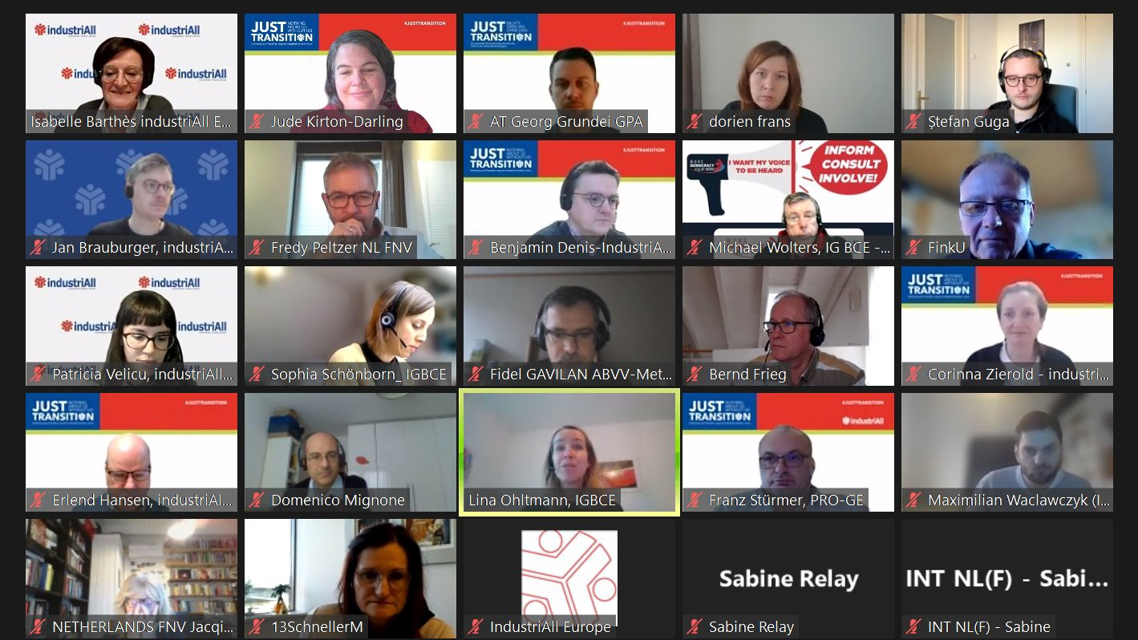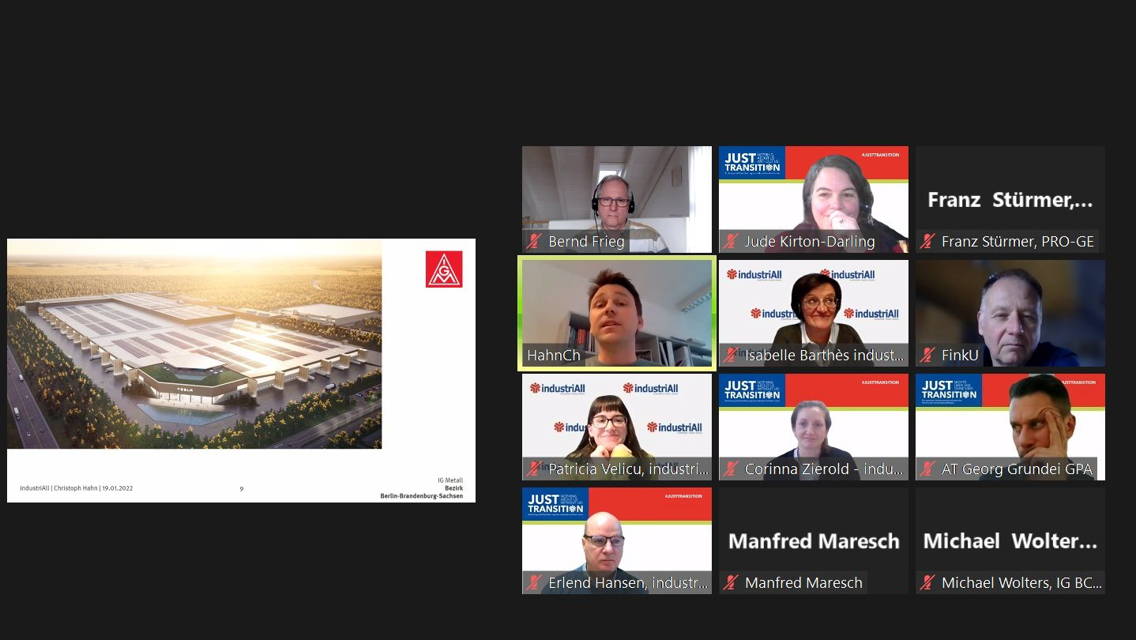The aim of the workshop was to understand the reality on the ground and how trade unions are involved in the transition process to a green and digital industry.
The event took place against a difficult context whereby European policymakers’ growing climate ambitions are not being matched by equally ambitious social measures for workers whose sectors are subject to change. Workers and their trade unions are supporting the green destination, as long as the social standards and the quality of jobs are maintained.
The key conclusion was that in countries with functioning social dialogue and collective bargaining at all levels, trade unions are able to put in place instruments to tackle the challenges.
In Germany, IG Metall and IGBCE have been involved in raising awareness of workers about the green and digital transformation for many years. This has paid off very well, as the unions have been able to mobilise, win agreements, and ensure that they are involved in managing the transitions. In the steel, metal and electro sectors, collective agreements combine working time reduction and early retirement to secure quality employment.
A best-case example is the ‘Revierwende’ Project, led by DGB, that supports workers in the transition and involves them in the coordination of the structural change of the coal regions through local offices in Rheinisches Revier, Lausitzer Revier, Mitteldeutsches Revier and Saarland. Trade unions are gathering knowledge necessary for a smooth coal phase-out, which also means a loss of activity for a whole range of subcontractors, in addition to the coal workers.
Jobs lost in the coal industry must be replaced with jobs of similar value in greener energy producing sectors, as mining is deeply rooted in the identity of workers. A fast-tracking of social protection, up-skilling, re-skilling and quality job creation must be ensured, before the existing jobs are destroyed. Trade unions work closely with other stakeholders in the different working groups of the project to tackle these challenges.
In Austria, the system of co-determination and strong social dialogue at all levels also ensure that trade unions are involved in knowledge production and in companies’ development of strategies. They often participate in the elaboration of impact assessments of the twin transition and how to ensure better outcomes for workers. Instruments like working time reduction and early retirement are also used in Austrian collective agreements that deal with managing transitions.
These examples paint a different picture to the one from the first two workshops in Southern, and in Central and Eastern Europe. There, the dependencies on multinational companies, especially from Northern Europe, triggered major concerns about company strategies and impacts on the supply chain. In the context of the twin transitions in Europe’s regions, building, re-building and strengthening social dialogue and collective bargaining structures is a first crucial step to ensure Just Transition.
Isabelle Barthès, industriAll Europe Deputy General Secretary commented:
“Today’s examples have once again shown the value of strong social dialogue and collective bargaining structures. These make a Just Transition for workers possible, by involving them in the management of the transformation of their jobs. Trade unions are used to structural changes. It is in our DNA to find good solutions for workers during crises. The twin transitions accelerated by the COVID-19 crisis are unprecedented in scale, but trade union instruments to tackle the challenges do work.”
Judith Kirton-Darling, industriAll Europe Deputy General Secretary said:
“We continue to call on European policymakers to be as ambitious with the social legislation as they are with the climate one. We still do not see any hard legislation at European level that strengthens the rights of workers to anticipate and manage the changes of the twin transition. We will continue to campaign and ask for Just Transition to be translated into concrete policy to ensure that workers are involved in decisions about their future.”
*The event was the third in a series of 7 regional workshops that are taking place across all the regions of Europe until April 2022. They are part of industriAll Europe’s Just Transition campaign ‘Nothing about us, without us’. The next workshop is dedicated to the Nordic and Baltic Region and will take place on 25 January 2022.
Contact: Andrea Husen-Bradley (press and communication), Patricia Velicu (policy adviser)

